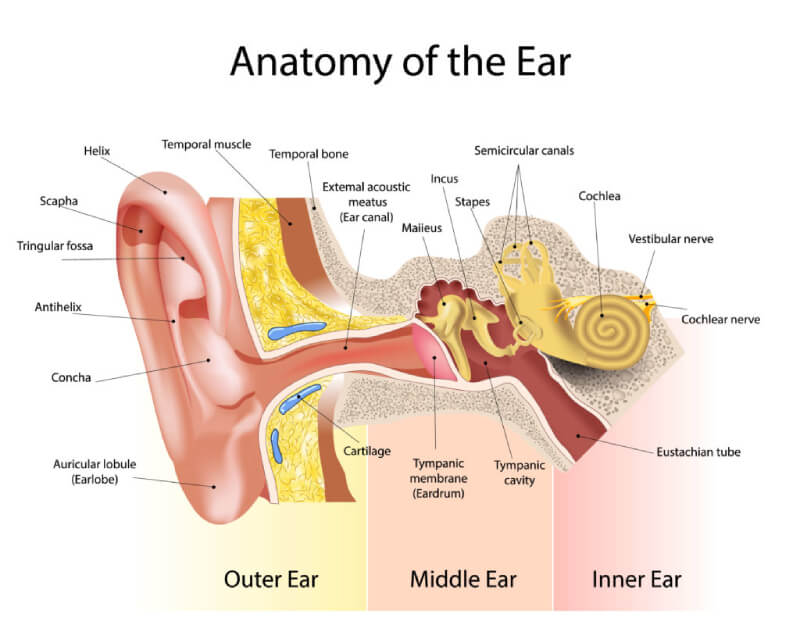Hearing loss is the third most common health problem in the United States, affecting people of all ages. If left untreated, hearing loss can affect your ability to understand speech and can negatively impact your social and emotional well-being, decreasing your overall quality of life.
The National Institute on Deafness and Other Communication Disorders (NIDCD), reports the following statistics about hearing loss in the United States:
- One in eight people in the United States (13 percent or 30 million) aged 12 years or older has hearing loss in both ears, based on standard hearing examinations.
- About 2 to 3 out of every 1,000 children in the United States are born with a detectable level of hearing loss in one or both ears.
- Approximately 15% of American adults (37.5 million) aged 18 and over report some trouble hearing.
- Age is the strongest predictor of hearing loss among adults aged 20-69, with the greatest amount of hearing loss in the 60 to 69 age group.
- Men are almost twice as likely as women to have hearing loss among adults aged 20-69.
- Non-Hispanic white adults are more likely than adults in other racial/ethnic groups to have hearing loss; non-Hispanic black adults have the lowest prevalence of hearing loss among adults aged 20-69.
Mixed hearing loss occurs when a person has an existing sensorineural hearing loss in combination with conductive hearing loss. This type of hearing deficit is considered a mix of sensorineural and conductive hearing losses, which means there is a problem in the inner ear as well as in the outer and/or middle ear.
The conductive hearing loss may be temporary or permanent, depending on the source of the problem. Mixed hearing loss can sometimes be treated with medical management, and hearing aids are a common treatment recommendation.
If you think you need a hearing test, take this NIDCD hearing test developed for adults ages 18 to 64. There are 10 quick questions to help you determine if you should have your hearing tested by a hearing healthcare professional.





